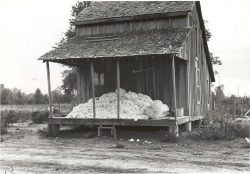
As we commemorate the anniversary of the Elaine Race Massacre today, it’s important to remember that Arkansas still hasn’t adequately addressed the grievance that slain sharecroppers sought to correct 100 years ago: wage theft.
The Black farmers who organized in Phillips County a century ago wanted, in part, a detailed accounting of the harvests they produced and what they were owed for them. With cotton prices at an all-time high in 1919, there was little recourse for tenant farmers to fight back against exploitation by White landowners who were taking huge percentages of the profits.
Sharecroppers were gathered at a meeting to address this issue on the night of September 30th, 1919, when the conflict began that led to the massacre. It was the deadliest racial confrontation in state history, and possibly United States history. It’s estimated that hundreds of Black people were killed over two days that were part of a national “Red Summer” of White mob violence.
Most people today would believe that workers are protected from the type of outright fraud and theft that led the sharecroppers in Phillips County to stand up for what was rightfully theirs. Nowadays, Arkansas workers who toil in low-wage jobs are entitled to pay stubs to outline how much they’ve worked and what they’re owed for it – right?
Wrong.
Arkansas is one of a group of mostly Southern states that still don’t require employers to issue pay stubs to workers. The other states are Alabama, Florida, Georgia, Louisiana, Mississippi, Ohio, South Dakota and Tennessee. It may come as a surprise that the federal Fair Labor Standards Act does not require an employer to provide pay stubs to employees, outlining how much they’ve worked and how much they’re being paid for that work. Most states have passed their own laws requiring this, except for those listed above.
It’s not an oversight, or an accidental omission. Arkansas lawmakers have for years rejected proposals to protect workers from wage theft, which occurs when employees don’t receive their legally or contractually promised wages. A bill proposed by Sen. Greg Leding this year would have offered workers the simple protection of a pay stub, but it failed in the recent legislative session. Similar bills like it have failed for years and years. In fact, the Legislature this year actually reversed some of the wage-and-hour protections that Arkansas workers did have. Act 1751 of 2019 reduced the time that workers have to bring a lawsuit and ensured that employers only pay a penalty if a judge decides the failure to pay was willful.
The great majority of employers do the right thing, so most workers have pay stubs they can check and measure against what they know they’re owed. But it’s long past time that Arkansas stepped up to offer this simple protection as recourse for hard-working people who otherwise are at risk of exploitation from unscrupulous employers.
Modern-day wage theft takes many forms, including:
- Not paying workers for overtime
- Not giving workers their last paycheck after they leave a job
- Not paying for all hours worked
- Not paying the legal minimum wage
- Not paying a worker at all
One hundred years ago, former slaves and their families were most often the victims of wage theft. Today, the workers most likely to be underpaid are undocumented workers – especially women. The industries with the highest rates of reported wage theft include agriculture, poultry processing, janitorial services, restaurants, garment manufacturing, long term care, home health care and retail. While no industry is immune from wage theft, it’s more likely to happen in non-union workplaces. Based on 2018 data from the Bureau of Labor Statistics, only 5.3 percent of employed Arkansans are represented by unions, the lowest rate in the nation.
Government policies that don’t protect families’ economic security have the additional effect of limiting children’s opportunities. Because low-wage workers are disproportionately Black and Latinx, we see the long-term effects reflected in huge disparities in children’s outcomes. It’s time Arkansas took seriously its history of racial discrimination and worked to enact policies to reverse those long-term effects.
On Sunday, September 29, a memorial to those who died in the Elaine Massacre was dedicated in Helena-West Helena. We can’t change what happened at Elaine in 1919, but we can fix this error in today’s state law. To truly honor the memory of massacred Phillips County sharecroppers, Arkansas lawmakers should vow today to pass wage theft protections.
